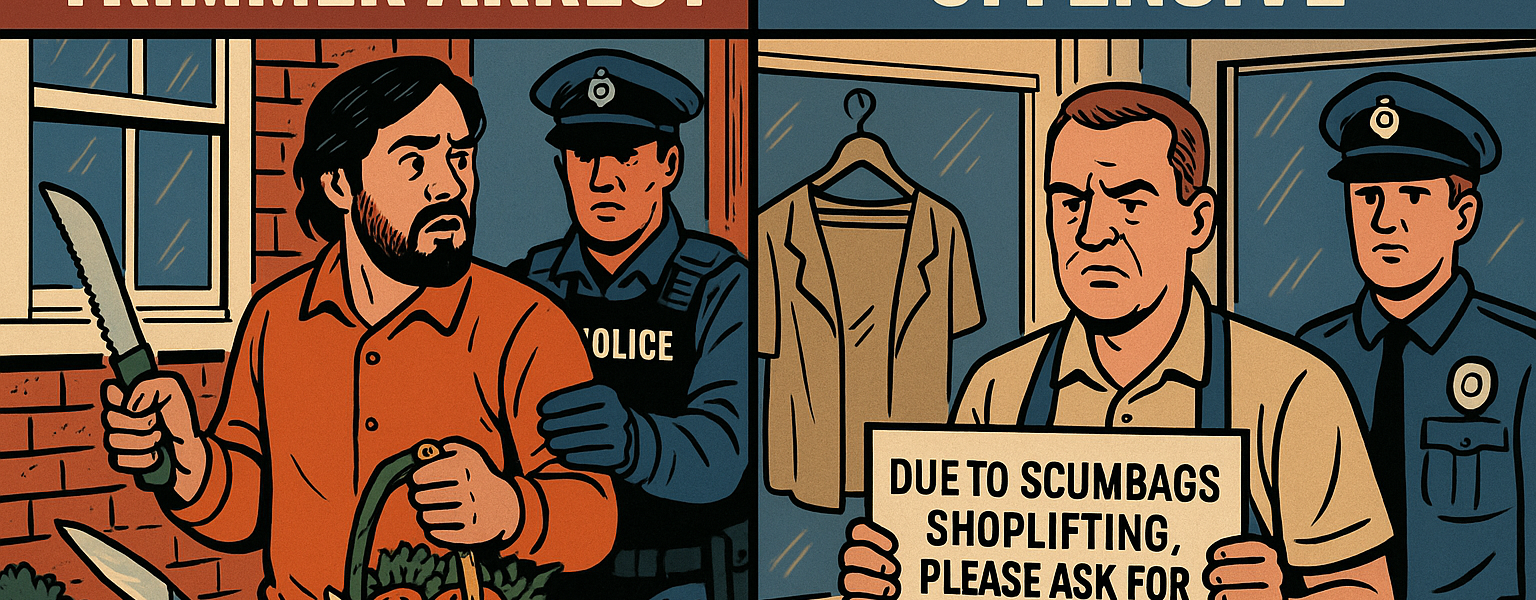Another week brings another absurd glimpse into Britain’s slow-motion collapse of basic freedoms. In a country where citizens are denied the right to arms and self-defense, ordinary gardeners are treated like knife-wielding criminals while police scold store owners for using mean words about actual thieves. The result is a nanny-state parody—grown adults infantilized, real crime ignored, and the state ever eager to police language and tools rather than lawlessness.
In late July, The Guardian reported on Samuel Rowe, a 35-year-old theater technical manager from Manchester, who was arrested at his own home for carrying gardening tools. Rowe had just returned from his allotment with a basket of vegetables and equipment, including a Japanese sickle and a hori-hori trowel, when armed officers shouted at him to “drop the knife.” Within moments he was cuffed, stuffed into a police van, and interrogated. After twelve hours in custody and without legal counsel, he accepted a police “caution” just to be released—an official mark that isn’t a conviction but still lives on his record and may damage his career. What was once a harmless hobby now leaves him fearful.
Meanwhile, when Rob Davies, a vintage shop owner in Wrexham, posted a blunt sign calling shoplifters “scumbags,” police warned him that the term might be offensive. Davies, who has caught multiple thieves in the act while officers did little, refused to bow to linguistic policing and printed more signs. The context is not trivial—shoplifting in England and Wales has surged to its highest level in more than two decades, yet police are preoccupied with speech policing.
Taken together, these incidents highlight a bleak picture: a government more interested in restraining citizens than confronting criminals. Britain’s drift into a culture of cautions, speech restrictions, and public disarmament should serve as a warning. Americans must guard our liberties fiercely, because once surrendered, they are nearly impossible to reclaim.







